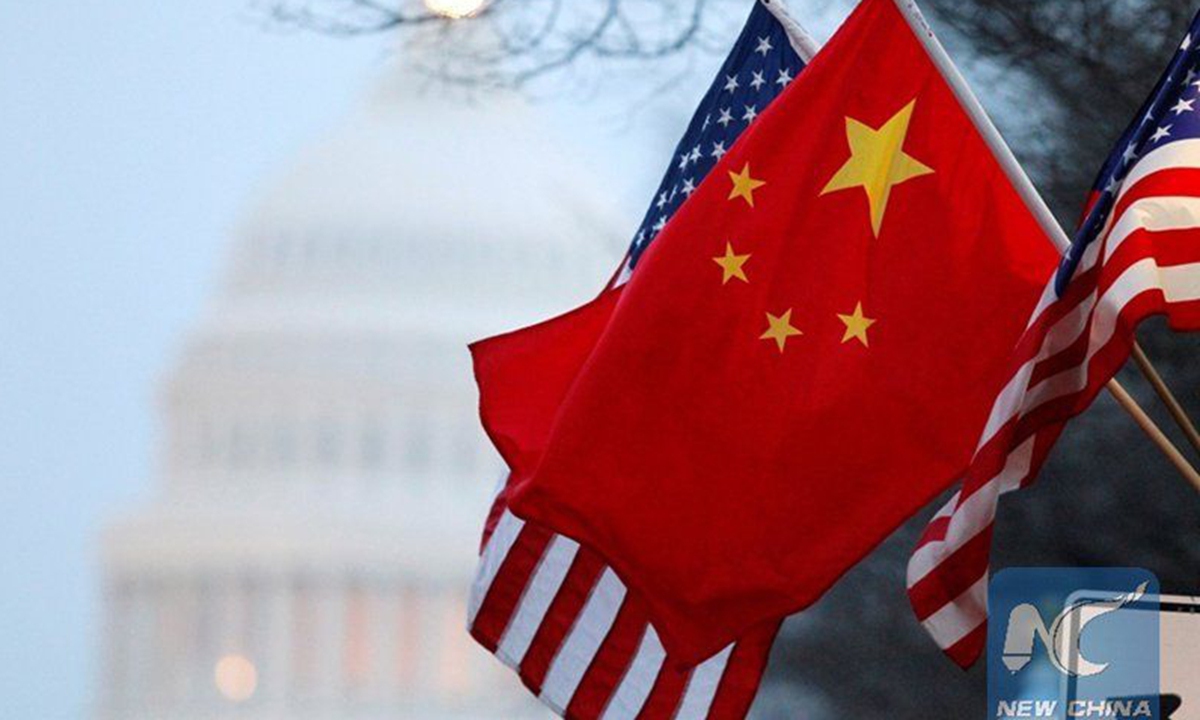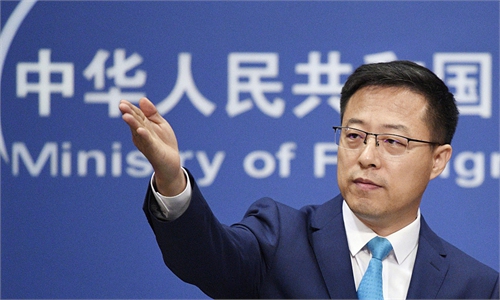COMMENTS / EXPERT ASSESSMENT
Failing at home, US Congress wastes time on China bills

File photo
The US Congress is pushing a bill aimed to confront China on the science and technology front after the passage of the so-called Strategic Competition Act of 2021, out of Washington's Cold War mindset, ideological bias and gross interference in China's internal affairs.The US Senate Monday completed the vote to open debate on the Endless Frontier Act, a bill that aims to invest more than $110 billion in technology research to out-compete China in areas including 5G, artificial intelligence (AI), and quantum computing, the Reuters reported.
US Senate Democratic leader Chuck Schumer, a sponsor of the bill, said the Senate debate of China tech bill starts on Tuesday, and he wants to complete its passage by the end of the month.
Republican Senator Marco Rubio reportedly wants to add a clause to the bill to "shield research and development from threats of espionage or theft from China." The proposal will prohibit people who have received financial or other support from the Chinese government from receiving funds authorized by the legislation, a Bloomberg report said.
During introduction and review process of the legislation, US anti-China senators from both parties have made no secret of their purpose to confront China.
Schumer has repeatedly said that his legislative package will help the US "out-compete China and create new American jobs." He said Monday that, "we can either have a world where China determines the rules of the road for 5G, AI, and quantum computing - or we can make sure the US gets there first".
While the Republican and Democratic politicians have difficulties in reaching agreement on a range of issues in the US Congress, they seem have no problem reaching quick bipartisan agreement in mobilizing strategic, economic and diplomatic tools to counter China, and the China-US relationship will be pushed toward a path of complete competition and rivalry.
Undoubtedly, similar to the so-called Strategic Competition Act of 2021, the Endless Frontier Act, co-sponsored by Democratic politician Chuck Schumer and Republican Senator Todd Young also represents the twisted mentality and attitude of the anti-China forces in the US Congress. If the bill is approved in the US Congress in May, it would be another impediment standing the way of restoring bilateral cooperation.
It is clear that while America's own economic and technological developments are struggling with the COVID-19 pandemic impacts and their inherent problems, American politicians are increasingly used to resort to the China-bashing approach on almost all issues. Anti-China sentiment has crossed the political spectrum in the US, and attacking China has become handy tool for US politicians.
However, it has been repeatedly demonstrated that smearing and attacking China never helps solve the US' own problems. This is true in economic and trade issues and also true across technological issues.
The brutal trade war launched by the Trump administration has been proved to be a disaster for the US economy. Continued attacks by anti-China politicians like Rubio will do nothing but poison China-US relations, which will do no good to the world.
In the face of the current predicament of the US economy, US politicians need more courage to confront the root causes of American problems than to continue politicizing technological developments and restricting global trade and supply chains, which has led to across-the-broad price rises and inflation in the US.
The development of science and technology requires global cooperation. To solve the current auto chip shortage, the US needs to have a rational view of competition with China and continue to cooperate with the world's second largest economy.
The author is an editor with the Global Times. bizopinion@globaltimes.com.cn


